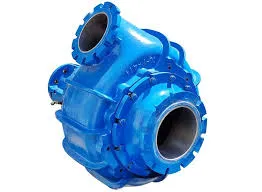English
- Afrikaans
- Albanian
- Amharic
- Arabic
- Armenian
- Azerbaijani
- Basque
- Belarusian
- Bengali
- Bosnian
- Bulgarian
- Catalan
- Cebuano
- Corsican
- Croatian
- Czech
- Danish
- Dutch
- English
- Esperanto
- Estonian
- Finnish
- French
- Frisian
- Galician
- Georgian
- German
- Greek
- Gujarati
- Haitian Creole
- hausa
- hawaiian
- Hebrew
- Hindi
- Miao
- Hungarian
- Icelandic
- igbo
- Indonesian
- irish
- Italian
- Japanese
- Javanese
- Kannada
- kazakh
- Khmer
- Rwandese
- Korean
- Kurdish
- Kyrgyz
- Lao
- Latin
- Latvian
- Lithuanian
- Luxembourgish
- Macedonian
- Malgashi
- Malay
- Malayalam
- Maltese
- Maori
- Marathi
- Mongolian
- Myanmar
- Nepali
- Norwegian
- Norwegian
- Occitan
- Pashto
- Persian
- Polish
- Portuguese
- Punjabi
- Romanian
- Russian
- Samoan
- Scottish Gaelic
- Serbian
- Sesotho
- Shona
- Sindhi
- Sinhala
- Slovak
- Slovenian
- Somali
- Spanish
- Sundanese
- Swahili
- Swedish
- Tagalog
- Tajik
- Tamil
- Tatar
- Telugu
- Thai
- Turkish
- Turkmen
- Ukrainian
- Urdu
- Uighur
- Uzbek
- Vietnamese
- Welsh
- Bantu
- Yiddish
- Yoruba
- Zulu
Telephone: +86 13120555503
Email: frank@cypump.com
Dec . 05, 2024 09:03 Back to list
Centrifugal Slurry Pumping Solutions for Efficient Fluid Transportation in Industrial Applications
Understanding Slurry Pumps The Role of Centrifugal Technology
Slurry pumps are essential components in various industries that handle thick, viscous mixtures of liquid and solid particles, commonly referred to as slurries. These pumps are specifically designed to transfer materials where traditional pumps may fail, particularly in sectors like mining, dredging, and wastewater treatment. Among the different types of slurry pumps, centrifugal slurry pumps stand out due to their efficient performance and versatility.
What is a Centrifugal Slurry Pump?
A centrifugal slurry pump utilizes the principle of centrifugal force to move both liquids and solids. The pump consists of a rotating impeller, which is situated within a casing. As the impeller spins, it generates a high-speed flow, causing the slurry to be drawn into the pump and propelled outward through the discharge pipe. This design allows the centrifugal slurry pump to handle a mixture of solid particles suspended in liquid effectively.
Advantages of Centrifugal Slurry Pumps
One of the primary advantages of centrifugal slurry pumps is their ability to handle various particle sizes and types. They are typically constructed with robust materials, allowing them to manage abrasive slurries that would cause significant wear and tear on standard pumps. Furthermore, they can be used for both high and low flow applications, making them versatile in different operating conditions.
Centrifugal slurry pumps also offer relatively simple maintenance. The design of these pumps allows for easy access to the impeller and casing, reducing downtime for repairs and servicing. This is particularly crucial in industries where operational efficiency is vital for profitability.
Applications of Centrifugal Slurry Pumps
slurry pump centrifugal

Centrifugal slurry pumps find their utility across various industrial applications. In the mining sector, they are used to transport slurries of minerals and ore, often containing abrasive particles that can damage equipment if not handled properly. The dredging industry also relies on these pumps to move sediments and debris from underwater settings to surface locations.
In wastewater management, centrifugal slurry pumps play a pivotal role in transporting sludge and other solids. They help maintain the efficiency of treatment plants by ensuring that solid waste does not accumulate, preventing blockages and system failures.
Considerations for Selecting a Centrifugal Slurry Pump
When selecting a centrifugal slurry pump, several factors must be considered. The type and concentration of solids in the slurry, as well as the pump's flow rate and pressure requirements, are critical to ensuring optimal performance. Additionally, the construction materials of the pump should be chosen based on the corrosiveness and abrasiveness of the slurry being handled.
Pump design configurations, such as the impeller type and casing design, can also influence performance. Open impellers may be more suitable for slurries with larger particles, while closed impellers can provide higher efficiency for finer slurries.
Conclusion
Centrifugal slurry pumps are indispensable tools for industries dealing with challenging materials that require careful handling and efficient transport. Their ability to manage abrasive slurries, coupled with their simple maintenance and versatility, makes them a preferred choice in many applications. As industries continue to innovate and evolve, the design and technology behind centrifugal slurry pumps will likely advance, further enhancing their efficiency and reliability in moving complex mixtures. Understanding these pumps and their applications can significantly benefit professionals in fields that rely on effective slurry management and transport.
-
Horizontal Split Case Pump with GPT-4 Turbo | High Efficiency
NewsAug.01,2025
-
ISG Series Pipeline Pump - Chi Yuan Pumps | High Efficiency, Durable Design
NewsAug.01,2025
-
Advanced Flue Gas Desulfurization Pump with GPT-4 Turbo | Durable & Efficient
NewsJul.31,2025
-
ISG Series Vertical Pipeline Pump - Chi Yuan Pumps | Advanced Hydraulic Design&Durable Construction
NewsJul.31,2025
-
ISG Series Vertical Pipeline Pump - Chi Yuan Pumps | Energy Efficient & Low Noise
NewsJul.31,2025
-
pipeline pump - Chi Yuan Pumps Co., LTD.|High Efficiency&Low Noise
NewsJul.31,2025










